If you are remodeling your home or building a new one, one of the concerns will be where to put the laundry room. Many people prefer it to be in the basement, while others like it closer to the majority of the laundry. There are certainly advantages and disadvantages to both. Some of it will depend on the type of house you have, the age and dependability of your plumbing, and your own personal choice. Laundry is not often everyone’s favourite contact sport but it has to be done. Where you put your laundry room should come down to you. Space and convenience are likely the biggest deciding factors.
Laundry Room in Basement vs. Upstairs
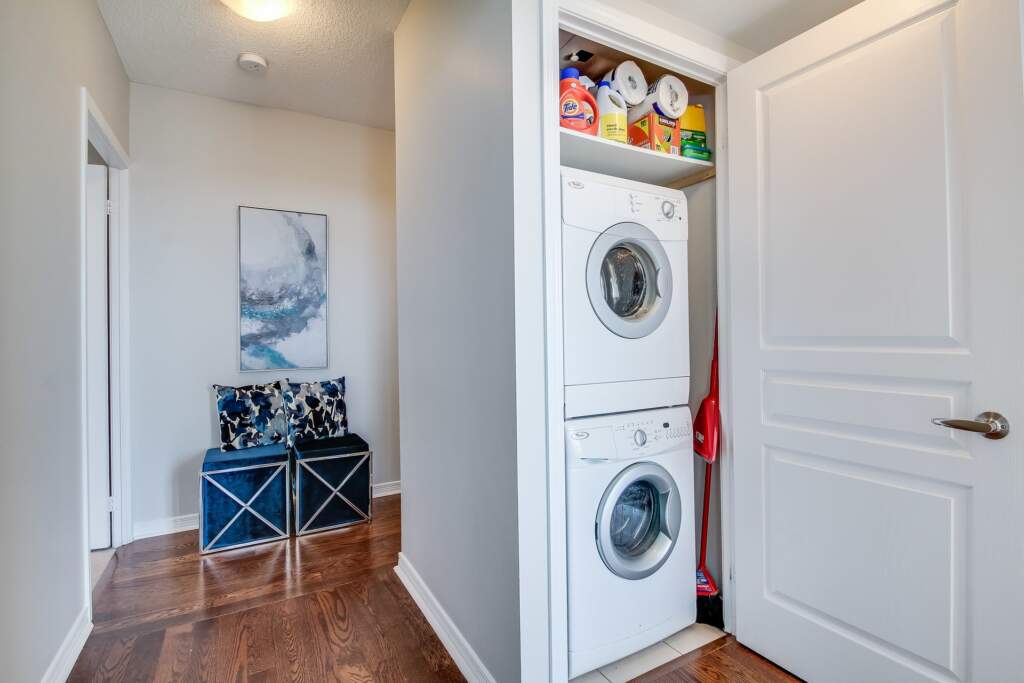
Laundry rooms were almost always left in the basement. They were out of the way, discrete, and some people had a clothesline up to cut drying costs. But, they are starting to move upstairs. Some people find it more convenient to have the laundry upstairs. Plus, technology with these appliances has improved greatly and they are not the unsightly beasts they used to be.
Most of the laundry needing cleaning accumulates above the basement so it makes it easier to do more loads when it is closer. But, the basement allows for more space and extra storage. If your laundry room is in an unfinished basement, it often doesn’t matter what it all looks like. But if you are remodeling your basement or building a new laundry room, you may want to move it upstairs.
When It’s Best to Move Laundry Room Upstairs
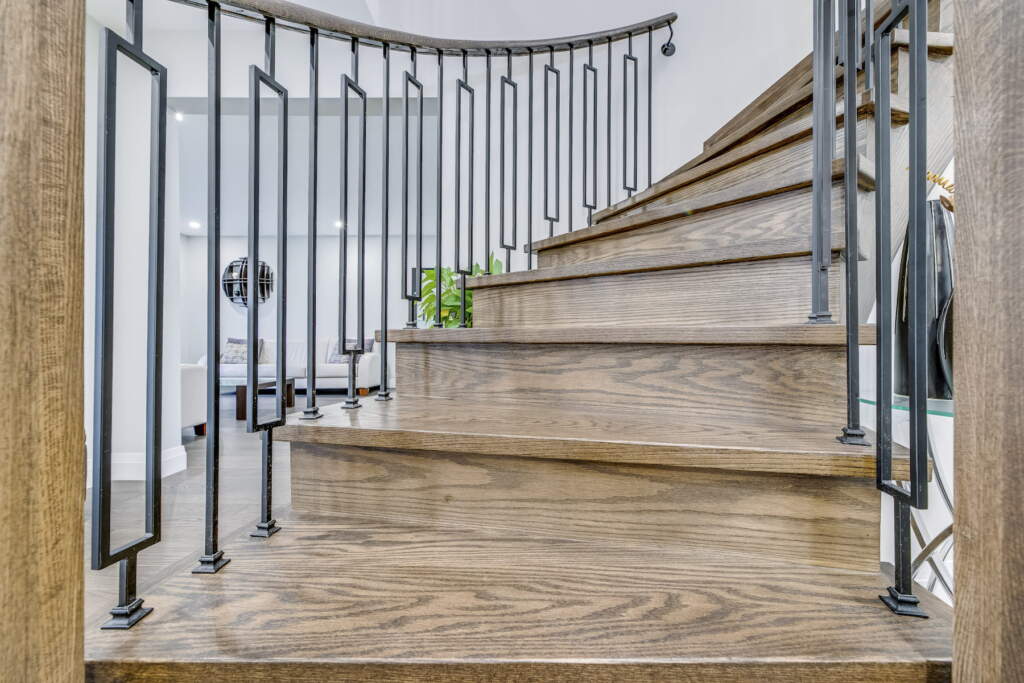
One of the biggest reasons people want to move the laundry room upstairs is convenience. It might be difficult for someone to haul the laundry up and down the basement stairs. They may be living with an injury causing mobility concerns which make it impossible to cope. Older people may also fear falling or tripping, the risk is actually quite high. Another main reason people want the laundry out of the basement is a renovation. Making the basement into a more livable space may not include the laundry.
If you are building a suite to rent, then it wouldn’t be convenient for you or your family members to be going down into someone else’s space to do your laundry. If you need an extra bedroom or a home office, laundry noises may be inconvenient. Basements can be damp and smell of damp. This odour can transfer to your clothes or linens, in particular, if you use an indoor clothesline. The smell of mould and mildew can be difficult to get out.
Pros of Upstairs Laundry Room
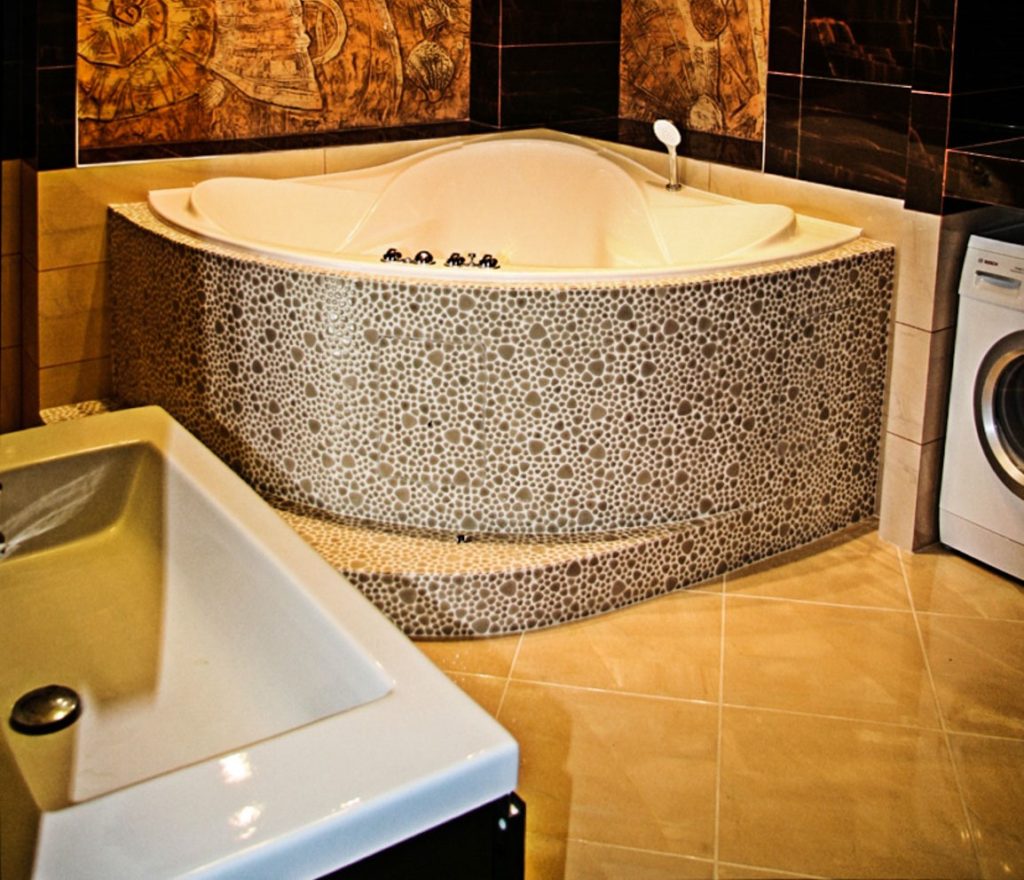
There certainly are plenty of benefits to moving your laundry room upstairs. If you have the space to put in a washer and dryer, then the first bonus is convenience. It saves a lot of time and energy to put the laundry room upstairs. It is often near the kitchen and bathrooms which makes it very easy to place soiled items in or near the washer. It’s also convenient to get clothes when they are finished drying. It is easy to forget about your laundry when it is out of sight and you can’t hear the machine cycles.
Catching the rinse cycle to add softener is difficult if your washer is a floor below. No one wants to keep running up and down the stairs for that if your washer doesn’t do it automatically. It is certainly much easier to get the clothes out of the dryer as soon as it stops. It’s also easier to take things out as they dry, leaving other items in longer. We don’t often do this if we have to keep going downstairs. Your upstairs laundry room can be incorporated into a bathroom, a porch, in the kitchen, concealed in a closet, and just off the kitchen. It is often very easy to pipe into the existing plumbing.
Cons of Upstairs Laundry Room
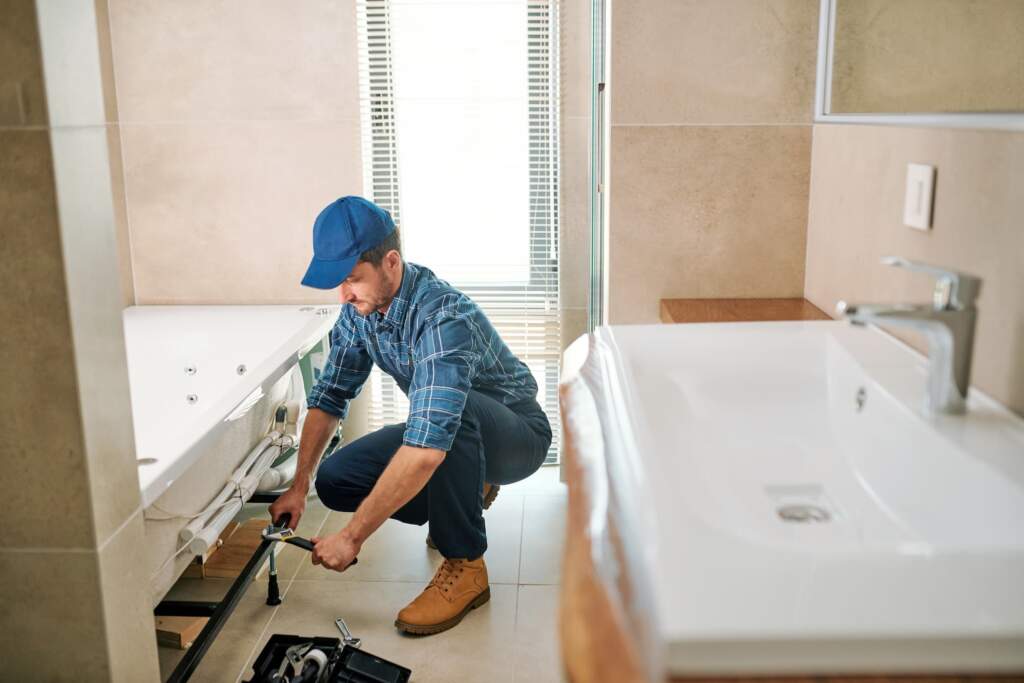
The debate rages on, as there are going to be disadvantages to having your laundry room upstairs. Not everyone wants to have their washer and dryer on the main or second floor. Many people will be giving up precious floor space that could be used for something else. Many older homes have little to no adequate storage space. Even stacked machines need a lot of space. If you are trying to get them into a bathroom, in the kitchen, or off to the side, or even putting them in a closet, they take away space that could be put to better use.
Flooding is a big concern. Basements are equipped to cope with excessive water but your kitchen is not. A floor can severely damage your floors, cabinets, and other furniture. Washing machines can leak without you knowing it. If this happens, there can be untold structural damage before the leak is ever discovered. Your basement will have drainage and a sump pump.
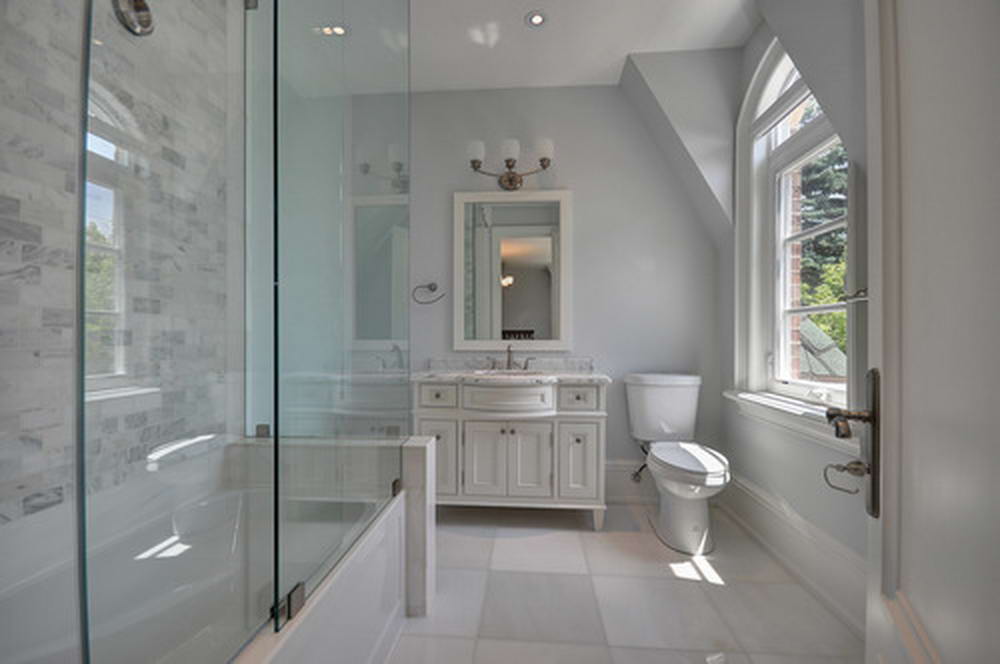
The weight of the machines can also be too much for some types of floors. They can crack or damage your flooring, leave scratches or stains, and leave pockets where they sit or vibrate. The machines can start to bang and jump around if the clothes are uneven. Not only is this noisy, but it can cause a bit of damage. A moving machine can damage walls, break dishes, and knock stuff off countertops and out of cupboards.
You also need to decide where the dryer ventilation will go. It isn’t always easy to find a spot that doesn’t interfere with your or your neighbour’s space. If you need to make a hole, then this can come with its own complications. Machines can be noisy and this may be a real problem if you are trying to talk to someone, have a phone conversation or you have an office close by. The vibrating can be disturbing to sleeping babies or shift workers.
When It’s Ideal to Have Laundry Room in Basement
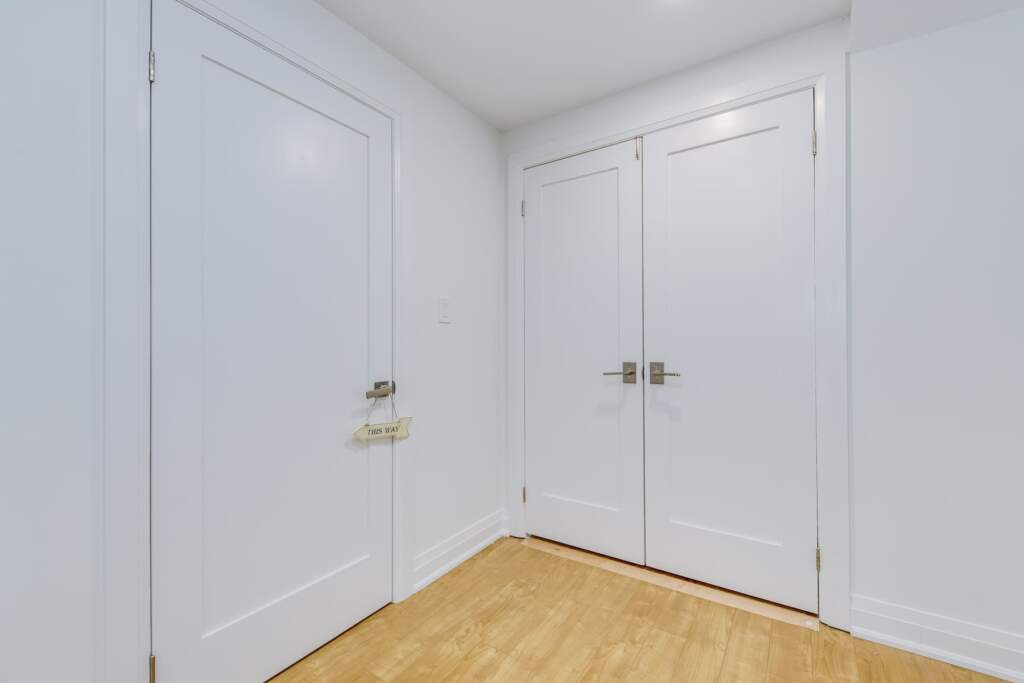
If you have an unfinished basement or not, it is quite common to have the laundry set up in the basement. If you are looking at building a laundry room or renovating the basement, there are some great basement laundry room ideas. Not many people see our laundry facilities but that doesn’t mean it can look nice. An unfinished basement lends itself very nicely to options for a great laundry area.
Older homes tend to be smaller, so keeping the washer and dryer downstairs is more convenient and doesn’t eat up a lot of floor space. You very often have more room to add cabinets, shelves, or anything else you want. Older homes may have structural damage, as well. You don’t want to put heavy machines on a weak floor. Remember that a washing machine gets very heavy when it is full of water and clothes.
Pros of Basement Laundry Room
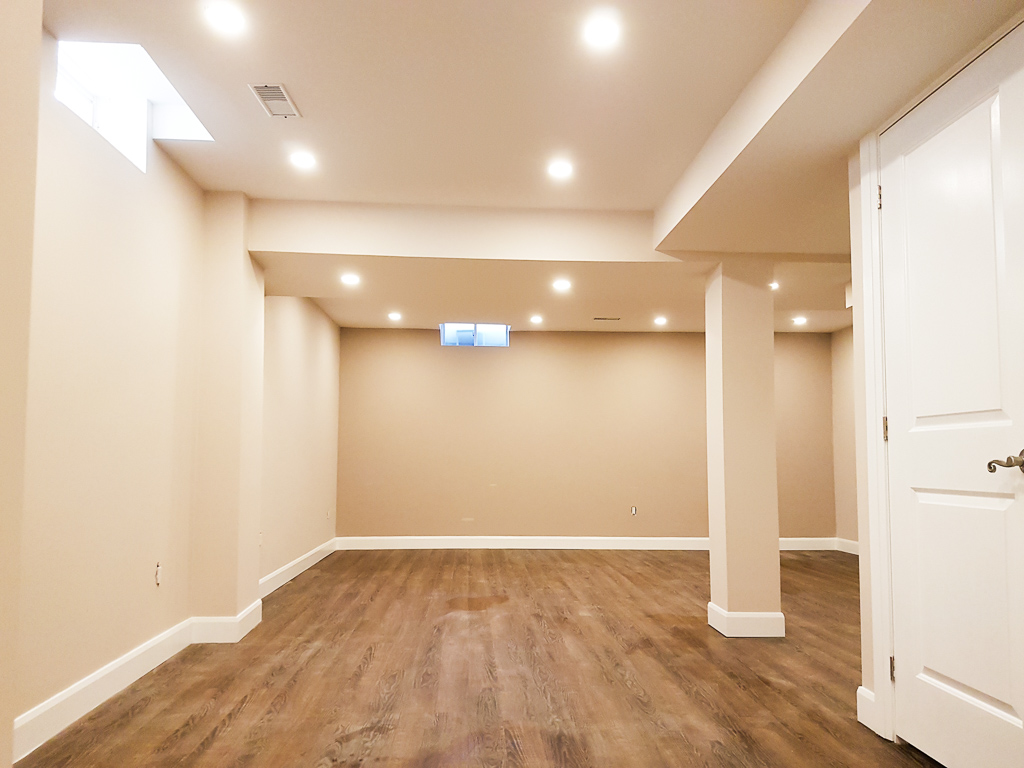
It’s often very nice to keep the laundry machines away from the main part of your living space. Visually, they can make your space seem smaller and cramped. It can be nice to have a separate place to do the laundry. You can actually get very creative with your basement laundry room. Adding a few shelves or cupboards give you storage space. Add a table for sorting and flooding laundry, pipe in some music, and add some great work lights. Even if your basement is finished, most of us still have more room for the laundry room.
Flooding is a big concern with laundry. Washing machines can get leaks that we don’t always see right away. Your basement comes equipped to handle floods and dampness better than the rest of your home. There is drainage in your basement floor and a sump pump. These will take care of any flooding water that may occur, especially if you are not around to see it happening. There will be a lot less damage if your washing machine leaks in the basement rather than the kitchen or elsewhere. Water damage can be extensive, so keeping potential floods contained is just smart.
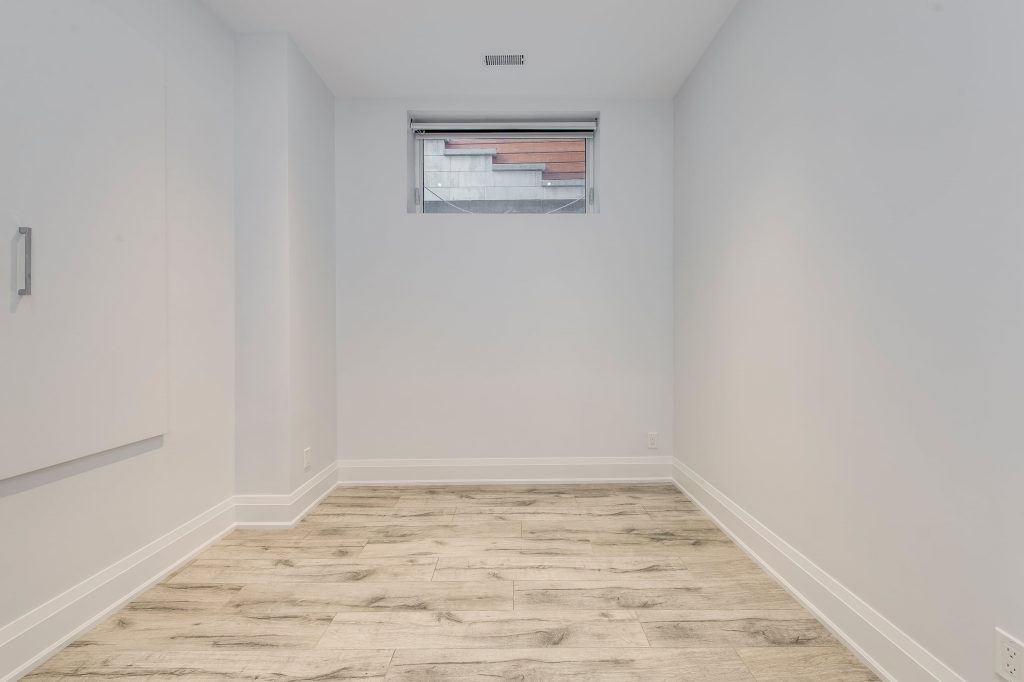
If your washing machine leaks from the upper floor down, then the damage can be extensive and cost a lot in repairs. The structural damage can run quite deep, in particular, if you are unaware of the leak until it’s too late. Chances are you have space to string up an indoor clothesline. This saves on energy bills and allows you to dry your clothes without your neighbours seeing all your stuff hanging out. Machines can be noisy. Keeping your laundry room in the basement keeps the noise down there, as well. If you have the room you can build walls or conceal the washer and dryer to help cut back on the amount of noise they make.
Depending on the type of clothes you wash the most, they can have a strong odour. Babies and toddlers go through a lot of clothes. You don’t need the strong smells they produce lingering around the breakfast table. Smelly work clothes are the same. Oil, mud, farmer’s clothes, these can be extremely pungent. If you are not going to get them in the machine right away, they need to be kept away from where you eat and sleep.
Cons of Basement Laundry Room

Of course, keeping the laundry room in the basement isn’t ideal for everyone and every situation. There can be some inconveniences with this, as it will not suit everyone’s needs. Mobility may be a concern for many people. People who are getting older or can’t get up and down the stairs very well will struggle a lot with laundry in the basement. If walking is difficult, then carrying laundry will be nearly impossible.
As a result, it often doesn’t get done as often as it should. This can leave them wearing the same things over and over again. Some people have been known to just buy new clothes rather than admit they can’t get up and down the stairs. The bigger issue here is not the smelly clothes, but the safety concern. The worry that someone might take a stumble down the stairs can be terrifying. This would obviously be a reason to move the machines upstairs.

It can also be difficult to get the machines in and down the stairs. Today’s machines are not made to fit in older homes. In some cases, it can be downright impossible to get the machines through the door or down the stairs. Basements are damp and can smell of mould and mildew. This can not only get into your clothing but can make you sick. If you are spending a lot of time doing laundry, this can be a health hazard. If you have a finished basement for your teens to use, a home office, or even to rent out, then traipsing up and down the stairs can be an invasion of privacy. Other arrangements will need to be made.
Maybe you have built a granny suite for a loved one or rented it out, then you need to get the laundry room out of their space. Chances are there is going to only be the one entrance, so this will not work for other tenants. If your basement isn’t finished, you may need to add ventilation and even plumbing before you can use the space for a laundry room. You need to have proper drainage for the washer.
Contact Us
Moose Basements can help. We can turn your unused space into anything you want or need. A basement that is just sitting empty or used for storage has unlimited potential. Contact us to find out about getting a great laundry room in your basement. Our experienced contractors will work with you to make your new laundry room ideas become a reality. If you are looking for more than just a laundry room, then we can help you with whatever you need. We offer fixed pricing, extensive warranty, 100% client satisfaction, and service to the GTA.
The post Pros and Cons of Basement vs. Upstairs Laundry Room appeared first on Moose Basements LTD.
https://moosebasements.ca/pros-and-cons-of-basement-vs-upstairs-laundry-room/
Did you miss our previous article...
https://manstuffnews.com/basement-ideas/tips-to-prevent-your-basement-from-getting-damp
 Backyard GrillingWeekend WarriorsAdvice from DadBeard GroomingTV Shows for Guys4x4 Off-Road CarsMens FashionSports NewsAncient Archeology World NewsPrivacy PolicyTerms And Conditions
Backyard GrillingWeekend WarriorsAdvice from DadBeard GroomingTV Shows for Guys4x4 Off-Road CarsMens FashionSports NewsAncient Archeology World NewsPrivacy PolicyTerms And Conditions
